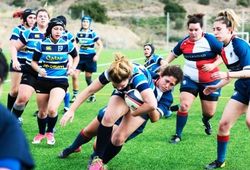No matter which school, university or college you go to or what course you do or subject you take, you will have to do some sort of studying. Everyone has their own ways of learning and revising which are suited to them. There are 3 well known categories of learning: visual, auditory and kinesthetic. Some people feel they can only learn one of these ways but often the best learners are a combination of all three.
Visual Learners
Some people may be what is known as 'Visual Learners', where they take information in from diagrams, colour coded information, e.g. highlighted sections. When studying for exams these types of learners often create mindmaps or 'spiderwebs'. A mindmap is normally based around one heading which is placed in the middle. Subheadings will be expanded from that centre heading, and then further headings from those subheadings and so on. Students often use this idea to test their knowledge of a heading and to see how much they really have remembered about that topic. The idea of the mindmap is, it is in the style of a tree branching out, with smaller sections; each branch is connected to the previous branch but is elaborated or linked. As said before, another good idea for Visual Learners is to highlight in colour. As seen on the example below, colour can be used to highlight the subtopics or used to link with other information from a different section. The great thing about the mindmap is that it is a basic idea which can be altered or styled however the student may like.
Visual Learners also study and learn well by reading and writing. Often some students read over their textbook and notes which sometimes might work can often result in the information not being retained. A good way to study, especially for Visual Learners, is to copy out some notes, then go back and highlight the key points to that sentence. When reading over your notes closer to the test, the highlighted words will stand out to you.
Kinesthetic Learners
Others are known as being more sided to being Kinesthetic Learners, which is a type of learning that must be very hands-on. Often for these types of learners, they do lots of writing instead of reading. They also think it is beneficial to do activities to learn. This could be anything from making a poster, to creating and playing a game with questions for their subject, or even creating flashcards. For Kinesthetic Learners it is important for them to take regular breaks as sitting down for a while will affect their learning and studying. These types of learners are often keen on sport so it is important they get exercise and fresh air as much as they can to increase their ability to take in knowledge.
As only 5% of the population are Kinesthetic learners there haven't been many things created for them to help them study. However Kinesthetic learners are often good with coming up with ideas themselves and managed to find some hands-on approaches to help them study and take in all the information they need.
Auditory Learners
The last type of the three styles of learning is 'Auditory Learners'. When it comes to studying for exams, Auditory Learners often do not write or read to study but they study best by listening. They may read out loud or get a family member or friend to read things to them. Often they may get their lecturers or teachers to record their classes so the student can listen back to what has been said. Again, this is quite a difficult style to create lots of ideas from, but certain things can be done to help these types of students. These students also find is easier to study whilst listening to music, certain music may be played in order to keep them more calm if they are confused or stressed about their exams, but also some music may be played to keep them more awake or feel upbeat so they can study better. More and more students these days are finding it easier to study with music playing in the background. Also some students, who learn by listening, often make notes by saying them out loud and recording them then listening to them back or even some play it while they sleep and wake up and feel the information has gone in.
Tips
Some final overall tips for studying are the four things which are told very often but not carried out enough. The first tip is that you should make sure you sleep enough. A good sleep should be 7-8 hours each night. Some students work better in the mornings, and others better at night, therefore, time your sleep around what you prefer doing. However, going to sleep too late often messes with your body clock, and remember, some days you may have to get up early for an exam. The second tip is that you should make sure you eat regularly and healthily. Breakfast is important as well as a lunch and dinner. Three meals a day, maintaining a healthy and balanced lifestyle. The third important tip is exercise. Exercise is recommended as ti means you can take breaks from studying, and also get away from your study environment, which is better for the brain to relax and for you to concentrate. Finally, it is very important you take breaks. A good idea to make sure you carry out all these tips is to create your own study timetable which can highlight what topic or subject you will do each day, when you will take breaks and times of each.
Do you have what it takes to play your sport and study in the USA? Register today for a UK assessment with FirstPoint USA and find out!




